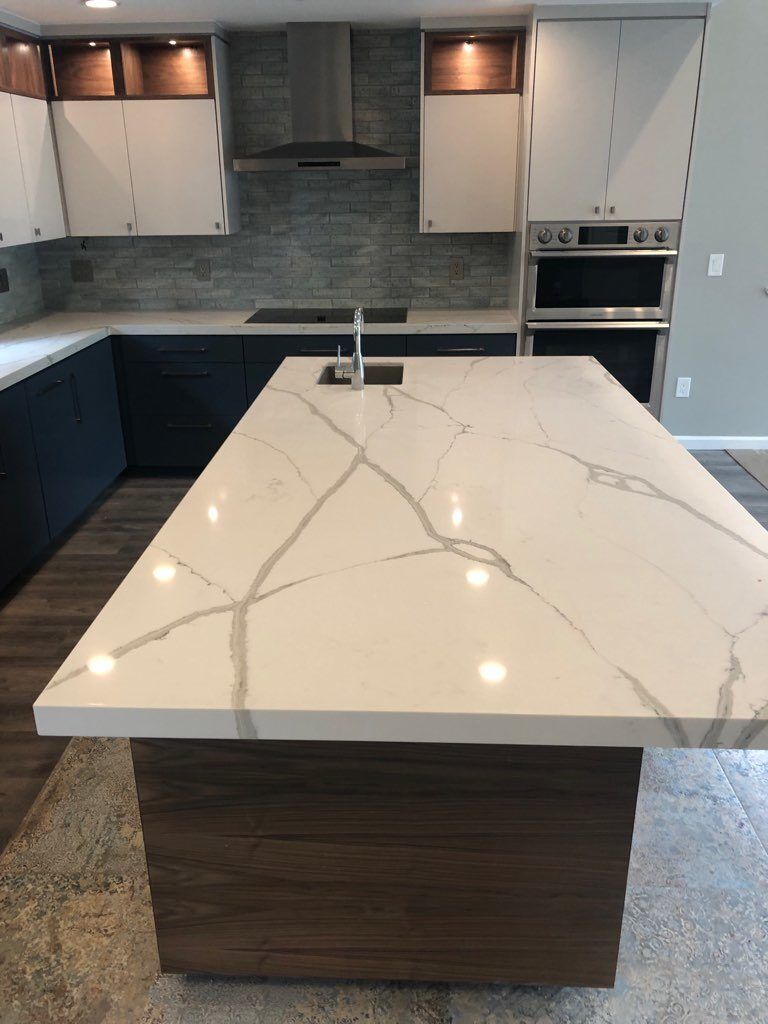What lasts longer quartz or granite? Two of the most popular options, quartz and granite, each have their unique strengths and weaknesses. But when it comes to longevity, which one lasts longer? Let’s dive into the properties, maintenance, and overall durability of quartz and granite to find out.
The Durability of Quartz
Composition and Manufacturing: Quartz countertops are engineered from a combination of natural quartz crystals (about 90-95%) and resins, along with pigments for coloration. This manufacturing process results in a non-porous and highly durable surface.
Resistance to Damage:
- Scratch Resistance: Quartz is incredibly hard and resistant to scratches. It ranks around 7 on the Mohs hardness scale.
- Stain Resistance: Due to its non-porous nature, quartz is highly resistant to staining. Spills from coffee, wine, and other substances are less likely to seep into the surface.
- Heat Resistance: While quartz is generally heat resistant, it can be damaged by sudden and extreme temperature changes. It’s advisable to use trivets or hot pads to protect the surface from hot pots and pans.
Maintenance: Quartz is very low-maintenance. It does not require sealing, and regular cleaning with mild soap and water is usually sufficient. Its non-porous nature also means it’s more hygienic and resistant to bacteria.
The Durability of Granite
Natural Composition: Granite is a natural stone, formed from cooled magma. It’s composed primarily of quartz and feldspar, along with other minerals. Each granite slab is unique, with its own patterns and colors.
Resistance to Damage:
- Scratch Resistance: Granite is also very hard and resistant to scratches, ranking around 6-7 on the Mohs hardness scale. It’s highly unlikely to be scratched by kitchen knives or utensils.
- Stain Resistance: Being a natural stone, granite is porous and can absorb liquids, leading to stains. However, proper sealing can make granite resistant to staining.
- Heat Resistance: Granite is extremely heat resistant. It can withstand high temperatures, making it suitable for kitchen countertops where hot pots and pans are frequently placed.
Maintenance: Granite requires more maintenance than quartz. It needs to be sealed upon installation and resealed periodically (typically once a year) to maintain its resistance to stains. Cleaning granite requires a bit more care, as harsh chemicals can damage the sealant.
Comparing Longevity
Longevity Factors:
- Durability: Both quartz and granite are durable materials that can last for decades with proper care. However, quartz’s non-porous nature gives it an edge in terms of lower maintenance and resistance to staining.
- Maintenance: While granite can last just as long as quartz, it requires more frequent maintenance (sealing and resealing) to keep it in top condition.
- Environmental Factors: Quartz is more consistent in quality due to its engineered nature, whereas the durability of granite can vary depending on the specific slab and its mineral composition.
Conclusion
In terms of sheer longevity, both quartz and granite are excellent choices for countertops and other surfaces. However, quartz’s non-porous nature and low maintenance requirements often make it a more practical choice for homeowners seeking durability with less upkeep. Granite, with its natural beauty and heat resistance, can be equally long-lasting but demands more regular maintenance to preserve its appearance and functionality.
Ultimately, the choice between what lasts longer quartz or granite comes down to personal preference, maintenance willingness, and specific use cases. Whichever material you choose, investing in quality and proper care will ensure your countertops remain beautiful and functional for many years to come.

